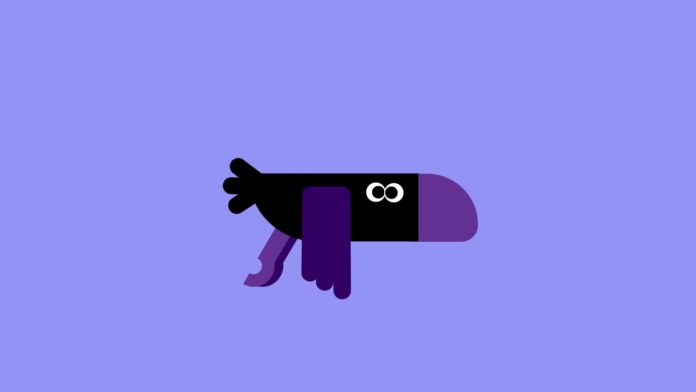Introduction:
In the world of web development, CSS animations have become a powerful tool to enhance user experience and engage visitors. In this tutorial, we’ll dive into the fascinating realm of CSS animations by creating a CSS Crow animation. By the end of this tutorial, you’ll have a clear understanding of how to create engaging animations that can breathe life into your web projects.
Things You Will Learn:
- Creating a container and positioning it on the screen.
- Using keyframes to define animation stages.
- Animating elements using transforms and properties like
top,left, androtate. - Adding depth with the
perspectiveproperty. - Crafting intricate shapes using border-radius.
Video Tutorial:
Prefer watching and learning? We’ve got you covered! If you’d like to follow along with a detailed video tutorial, head over to my YouTube channel. In the video, you’ll find a step-by-step guide to creating this playful crow animation using CSS. I’ll walk you through each animation stage, provide insights into the key techniques used, and give you a visual demonstration of how to bring your web elements to life. Don’t forget to like, comment, and subscribe for more exciting web development content! Watch the full video here:
Project Folder Structure:
To get started, create a folder structure for your project:
- index.html
- style.css
HTML:
The HTML file contains the bare bones structure of our crow:
<!DOCTYPE html>
<html lang="en">
<head>
<meta name="viewport" content="width=device-width, initial-scale=1.0" />
<title>Crow Animation</title>
<!-- Stylesheet -->
<link rel="stylesheet" href="style.css" />
</head>
<body>
<div class="container">
<div class="beak-upper"></div>
<div class="beak-lower"></div>
<div class="leg-1"></div>
<div class="leg-2"></div>
<div class="crow">
<div class="wings">
<div class="wing"></div>
</div>
<div class="tail"></div>
</div>
</div>
</body>
</html>
CSS:
The CSS file, style.css, holds the enchanting animations that bring our crow to life. In this file, we define keyframes, transform properties, and more to create a captivating visual experience. The crow’s movement, wings flapping, and even blinking eyes are all achieved through a series of carefully crafted animations.
* {
padding: 0;
margin: 0;
box-sizing: border-box;
}
body {
background-color: #9393f5;
}
.container {
height: 20em;
width: 25em;
position: absolute;
transform: translate(-50%, -50%);
left: 50%;
top: 50%;
animation: fly 2s infinite;
}
@keyframes fly {
50% {
top: calc(50% + 3.12em);
}
}
.crow {
position: absolute;
height: 5em;
width: 12.5em;
background-color: #000000;
border-radius: 0 0 0 5em;
transform: translate(-50%, -50%);
left: 50%;
top: 50%;
perspective: 31.25em;
}
.crow:before {
position: absolute;
content: '';
height: 0.9em;
width: 0.9em;
background-color: #000000;
box-shadow: -0.18em 0 0 0.25em #ffffff;
border-radius: 50%;
top: 0.9em;
right: 2.5em;
animation: blink 3s infinite;
}
@keyframes blink {
5% {
transform: scaleY(0);
}
10% {
transform: scaleY(1);
}
}
.crow:after {
position: absolute;
content: '';
height: 0.9em;
width: 0.9em;
background-color: #000000;
box-shadow: 0.18em 0 0 0.25em #ffffff;
border-radius: 50%;
top: 0.9em;
right: 1.5em;
animation: blink 3s infinite;
}
.beak-upper {
position: absolute;
height: 3.75em;
width: 5em;
background-color: #623193;
top: 7.5em;
left: 18.12em;
border-radius: 0 3.75em 0 0;
animation: caw-1 2s infinite;
transform-origin: 0 50%;
}
@keyframes caw-1 {
20% {
transform: rotate(-15deg);
}
30% {
transform: rotate(0);
}
40% {
transform: rotate(-15deg);
}
60% {
transform: rotate(0deg);
}
}
.beak-lower {
position: absolute;
height: 1.25em;
width: 5em;
background-color: #623193;
left: 18.12em;
top: 11.25em;
border-radius: 0 0 1.25em 0;
animation: caw-2 2s infinite;
transform-origin: 0 50%;
}
@keyframes caw-2 {
20% {
transform: rotate(15deg);
}
30% {
transform: rotate(0);
}
40% {
transform: rotate(15deg);
}
60% {
transform: rotate(0deg);
}
}
.wings {
position: absolute;
top: 0.93em;
left: 6.25em;
animation: flap 2s infinite;
transform-style: preserve-3d;
}
@keyframes flap {
50% {
transform: rotateX(180deg);
}
}
.wing {
position: absolute;
height: 8.12em;
background-color: #310062;
width: 1.25em;
border-radius: 0 1.25em 1.25em 1.25em;
}
.wing:before {
content: '';
position: absolute;
height: 7.5em;
width: 1.25em;
background-color: #310062;
border-radius: 0 0 1.25em 1.25em;
right: 1.25em;
}
.wing:after {
position: absolute;
content: '';
height: 6.87em;
background-color: #310062;
width: 1.25em;
border-radius: 1.25em 0 1.25em 1.25em;
right: 2.3em;
}
.tail {
height: 1.25em;
width: 3.12em;
background-color: #000000;
position: absolute;
left: -1.87em;
top: 0.31em;
border-radius: 1.25em;
transform: rotate(-5deg);
animation: wiggle 0.6s infinite;
}
@keyframes wiggle {
50% {
transform: rotate(5deg);
}
}
.tail:before,
.tail:after {
position: absolute;
content: '';
height: 1.25em;
width: 3.12em;
background-color: #000000;
border-radius: 1.25em;
transform-origin: right;
}
.tail:before {
transform: rotate(35deg);
}
.tail:after {
transform: rotate(-35deg);
}
.leg-1,
.leg-2 {
position: absolute;
height: 5em;
width: 1.25em;
top: 9.37em;
transform: rotate(30deg);
animation: leg 2s infinite;
}
@keyframes leg {
50% {
transform: rotate(40deg);
}
}
.leg-1 {
background-color: #310062;
left: 8.75em;
}
.leg-2 {
background-color: #623193;
left: 8.12em;
}
.leg-1:before,
.leg-2:before {
position: absolute;
content: '';
height: 1.25em;
width: 0.62em;
background-color: transparent;
border-radius: 0 1.87em 1.87em 0;
top: 4.06em;
right: -0.31em;
}
.leg-1:before {
border: 0.93em solid #310062;
border-left: none;
}
.leg-2:before {
border: 0.93em solid #623193;
border-left: none;
}
Conclusion:
In this tutorial, we delved into the captivating world of CSS animations by dissecting a remarkable crow animation. Through the power of keyframes, transformations, and creative use of pseudo-elements, we’ve managed to create an engaging and visually stunning crow that seems to come alive on the screen.



Is such preaty